- Home
- Roy J. Snell
The Magic Curtain Page 19
The Magic Curtain Read online
Page 19
CHAPTER XIX THE UNSEEN EYE
Five days passed. Uneventful days they were for Petite Jeanne; yet eachone was charged with possibilities both wonderful and terrible. She sawno more of Marjory Dean. What of her promise? Had she forgotten?
The little old lady of the cameo she visited once. The Chinese gentlemanwho might secure for her one more shuddering look at the magic curtainwas out of town.
Never did she enter the opera at night without casting fearful glancesabout lest she encounter the dark-faced man of the evil eye. He was neverthere. Where was he? Who was he? What interest could he have in a mereboy usher of the opera? To these questions the little French girl couldform no answer.
There were times when she believed him a gypsy, or at least a descendantof gypsies from France. When she thought of this she shuddered anew. Forin France were many enemies of Bihari's band. And she was one of thatband.
At other times she was able to convince herself that she had seen thisdark-faced one at the back of the boxes on that night when the pricelesspearls had vanished. Yet how this could be when Jaeger, the detective,and the mysterious lady in black haunted those same shadows, she couldnot imagine.
Of late Jaeger was not always there. Perhaps he was engaged in otheraffairs. It might be that on that very night Jeanne had seen him followthe dark-faced one, he had made an important arrest. If so, whom had heapprehended, the dark-faced one or the little Frenchman with a militarybearing?
Jeanne could not but believe that the little man from France was honestand sincere, that he truly bore an important message for her.
"But why then did he not come that night and deliver it?" she said toFlorence.
"Perhaps he lost his way."
"Lost his way? How could he? He was here, just across the way."
"You say two men followed him?"
"Yes, yes!"
"Then he may have been frightened off."
"If so, why did he not return?"
"Who can say?"
Ah, yes, who could? Certainly no one, for no one knew the full truth,which was that in her excitement Jeanne had mixed her numbers and,instead of presenting him with her own address, had sent him five blocksdown the street where, as one must know, he found no little French girlnamed Petite Jeanne. So here is one matter settled, straight off. Butwhat of the business-like little Frenchman? Did he truly bear a messageof importance? If so, what was the message? And where was the man now?Not so easy to answer, these questions.
Jeanne asked herself these questions and many more during these dayswhen, as Pierre, she served the occupants of the boxes faithfully, at thesame time drinking in all the glory and splendor of music, color anddrama that is Grand Opera at its best.
A glimpse now and then of the lady in black lurking in deep shadows neverfailed to thrill her. Never did she see her face. Not once did there cometo her a single intimation of the position she filled at the opera. Asshe felt that unseen eye upon her, Jeanne experienced a strangesensation. She went hot and cold all over. Then a great calm possessedher.
"It is the strangest thing!" she exclaimed to Florence one night. "It islike--what would you call it?--a benediction. I am dreadfully afraid; yetI find peace. It is like, shall I say, like seeing God? Should you beafraid of God if you saw Him?"
"Yes, I think I might," Florence answered soberly.
"Yet they say God is Love. Why should one fear Love?"
"Who knows? Anyway, your friend is not God. She is only a lady in black.Perhaps she is not Love either. Her true name may be Hate."
"Ah, yes, perhaps. But I feel it is not so. And many times, oh my friend,when I _feel_ a thing is so it _is_ so. But when I just think it is true,then it is not true at all. Is this not strange?"
"It is strange. But you gypsies are strange anyway."
"Ah, yes, perhaps. For all that, I am not all gypsy. Once I was not gypsyat all, only a little French girl living in a little chateau by the sideof the road."
"Petite Jeanne," Florence spoke with sudden earnestness, "have you nopeople living in France?"
"My father is dead, this I know." The little French girl's head drooped."My mother also. I have no brothers nor sisters save those who adopted melong ago in a gypsy van. Who else can matter?"
"Uncles and aunts, cousins, grandparents?"
"Ah, yes." The little French girl's brow clouded. "Now I remember. Therewas one--we called her grandmother. Was she? I wonder. We play that somany things are true, we little ones. I was to see her twice. She was,oh, so grand!" She clasped her hands as if in a dream. "Lived at the edgeof a wood, she did, a great black forest, in a castle.
"A very beautiful castle it was to look at on a sunny day, from theoutside. Little towers and spires, many little windows, all round andsquare.
"But inside?" She made a face and shuddered. "Oh, so very damp and cold!No fires here. No lights there. Only a bit of a brazier that burnedcharcoal, very bright and not warm at all. A grandmother? A castle? Ah,yes, perhaps. But who wants so grand a castle that is cold? Who wouldwish for a grandmother who did not bend nor smile?
"And besides," she added, as she sank into a chair, "she may not havebeen my grandmother at all. This was long ago. I was only a little one."
"All the same," Florence muttered to herself, some time later, "I'd liketo know if that was her grandmother. It might make a difference, a verygreat difference."

 On the Yukon Trail
On the Yukon Trail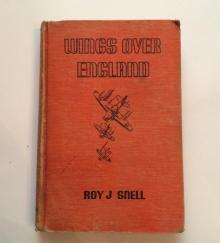 Wings over England
Wings over England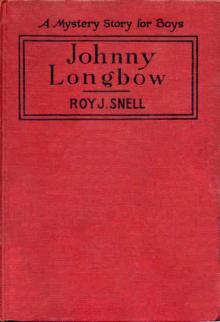 Johnny Longbow
Johnny Longbow Sally Scott of the WAVES
Sally Scott of the WAVES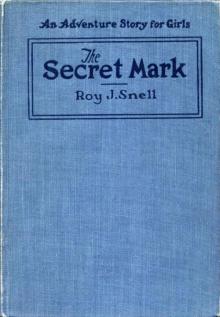 The Secret Mark
The Secret Mark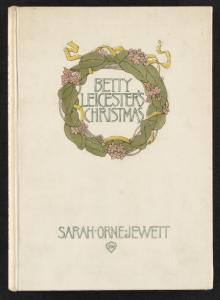 Betty Leicester's Christmas
Betty Leicester's Christmas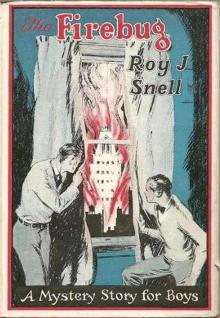 The Firebug
The Firebug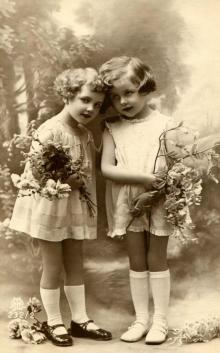 Minnie Brown; or, The Gentle Girl
Minnie Brown; or, The Gentle Girl Jack the Hunchback: A Story of Adventure on the Coast of Maine
Jack the Hunchback: A Story of Adventure on the Coast of Maine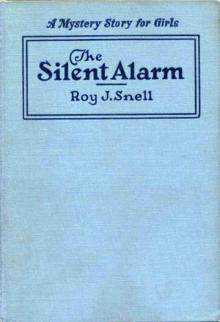 The Silent Alarm
The Silent Alarm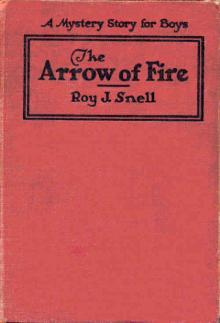 The Arrow of Fire
The Arrow of Fire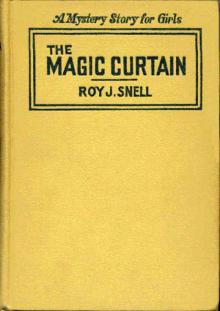 The Magic Curtain
The Magic Curtain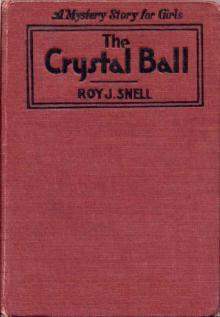 The Crystal Ball
The Crystal Ball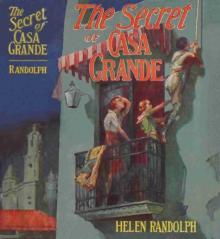 The Secret of Casa Grande
The Secret of Casa Grande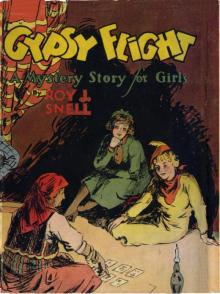 Gypsy Flight
Gypsy Flight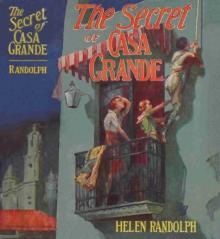 The Mystery of Carlitos
The Mystery of Carlitos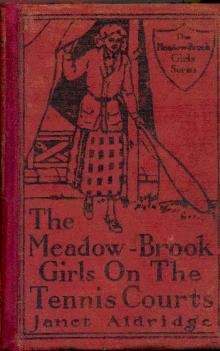 The Meadow-Brook Girls on the Tennis Courts; Or, Winning Out in the Big Tournament
The Meadow-Brook Girls on the Tennis Courts; Or, Winning Out in the Big Tournament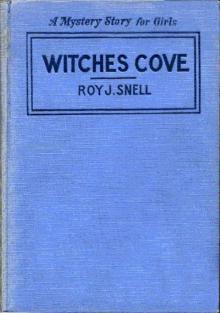 Witches Cove
Witches Cove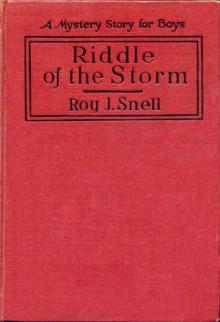 Riddle of the Storm
Riddle of the Storm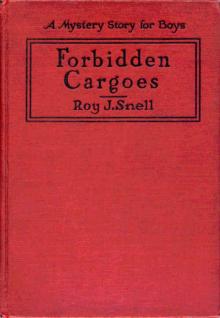 Forbidden Cargoes
Forbidden Cargoes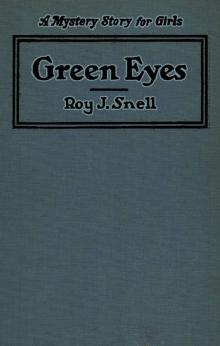 Green Eyes
Green Eyes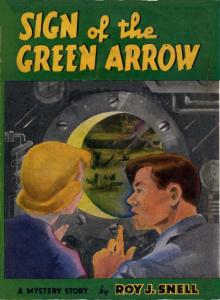 Sign of the Green Arrow
Sign of the Green Arrow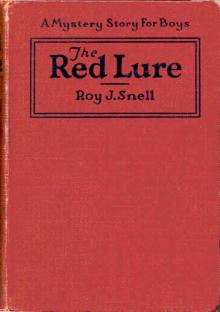 The Red Lure
The Red Lure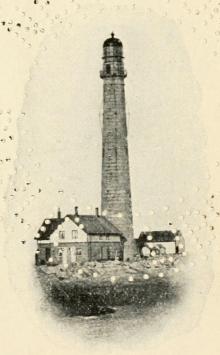 The Light Keepers: A Story of the United States Light-house Service
The Light Keepers: A Story of the United States Light-house Service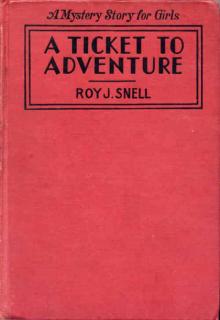 A Ticket to Adventure
A Ticket to Adventure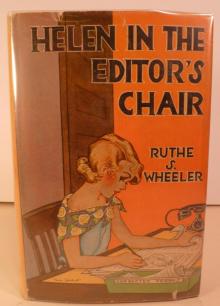 Helen in the Editor's Chair
Helen in the Editor's Chair Blue Envelope
Blue Envelope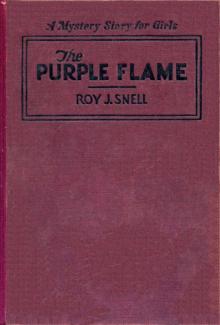 The Purple Flame
The Purple Flame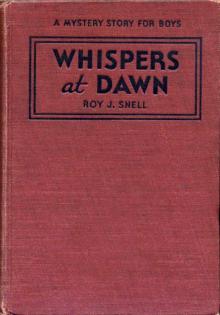 Whispers at Dawn; Or, The Eye
Whispers at Dawn; Or, The Eye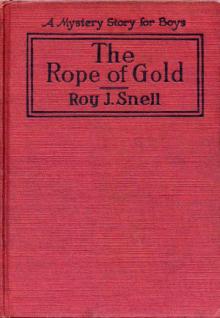 The Rope of Gold
The Rope of Gold Crossed Trails in Mexico
Crossed Trails in Mexico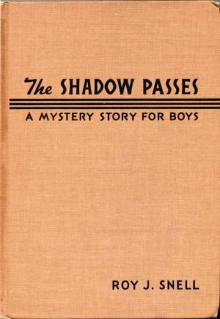 The Shadow Passes
The Shadow Passes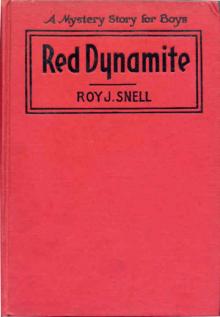 Red Dynamite
Red Dynamite Blue Grass Seminary Girls on the Water
Blue Grass Seminary Girls on the Water The Cruise of the O Moo
The Cruise of the O Moo